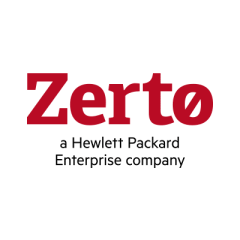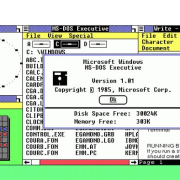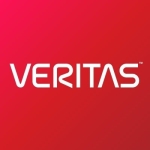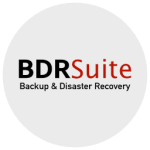What is our primary use case?
We use it for DR as well as migration. We have four data centers and migrate workloads between them.
We don't use it for backup.
How has it helped my organization?
We had some ransomware that got on and infected the corporate shared drives. It was just one system and one user type of thing. It didn't spread because we had it locked down pretty well. So, I just bumped the server back entirely so we did not have to worry about it.
We have only had one instance, and it wasn't widespread, where we had ransomware. The RPO was approximately 20 minutes. We had an active snapshot from when the incident happened, because we couldn't really iron it down. Therefore, Zerto saved us time in this data recovery situation because I didn't have to rebuild the thing or do a SnapMirror.
If we had used a different solution, it might have taken a week for our data recovery situation instead of 20 minutes with four or five technical folks (not including management), instead of just me. This is because we didn't have anything documented and just counted on Zerto to do it. I don't know what the company had set up previously since I'm new, but at the previous place that I've experienced malware, you would have to stand everything up from scratch and scrape through all your backups and differentials.
We use in the data center if there is a live event that could cost the company millions of dollars, which I haven't experienced, e.g., if our data center were to explode or get hit with a meteor, then ceases to exist. We have the option to go in and flip a switch. That has never happened. However, our tests using SRM went from a day to minutes when we switched to Zerto.
What is most valuable?
The most valuable feature is DR. In my opinion, there is nothing better at what it does.
The solution provides fantastic continuous data protection. We do a lot of spin up test environments depending on what happened, then make changes and rip it down. Or, if we got hit with malware, then we use that to do a point-in-time recovery. We custom create software in-house, so we will spin up a test environment to test code deployments or do a copy to do the same thing, if we want it to be around longer than a test recovery. For example, somebody got hit with something, then they infected the server. We were able to restore it back to a point in time before the infection.
It is super easy to use. A non-technical user can get it up in a day. I can get it up in 15 minutes. I've brought it to help desk guys and network operations center guys, and it's easily grasped.
What needs improvement?
While I am open to transitioning over to using Zerto for long-term retention, the problem is the alerting function in Zerto is very poor. That makes it a difficult use case to transition over.
The alerting has room for improvement as it is the biggest pain point with the software. It is so bad. It is just general alerting on or off. There are so many emails all the time. You have no control over it, which is terrible. It is the worst part of the entire application. I have voiced this to Zerto hundreds of times for things like feature changes. Apparently, it's coming, but there is nothing concrete as to when you can do it.
For how long have I used the solution?
What do I think about the stability of the solution?
The stability is fantastic. It has gotten a lot better as far as the maintenance. Initially, it required a lot of prodding and poking. As it sits today, it is really stable, though you sometimes need to mirror the changes in the application to what you have changed in your own infrastructure.
The management once it is already deployed is easy to moderate. Things can get a little goofy with the DRS and if you're shuffling things around. If your infrastructure is pretty static, you're not going to have any problems with Zerto. But, if you move things around or do any updates, you have to come in and make sure everything is good to go. It is not difficult, but sometimes you are required to go in and maintain it. Because we turn off the alerting in most places, you don't know its status without going in and manually looking.
I am the primary Zerto administrator. Therefore, I own the product for my company and use it every day.
What do I think about the scalability of the solution?
Scalability is great. It will scale essentially one-to-one with your virtual infrastructure. However, if you have more hosts and VMs, then you have to go in and manage that many more hosts and VMs.
Four people know it and use it to do things. I'm the primary, then there is another guy who is the direct backup on my team. Then I have trained a couple other people who know how to utilize it in the event of an emergency, e.g., "This is how you would failover X environment." Because it won't automatically do failovers, somebody has to pull the trigger. Therefore, we have documentation in order to do that. It is very simple.
We don't use it for everything, not in both instances where I implemented it or been in charge of running it over. However, it definitely has freed people up to do other things in that space. It only takes me to entirely administer Zerto, instead of a backup and recovery operations team with two or three people.
We are at about 60 percent of use. I would like to see more. We don't do persistent long-term backups or use any of the cloud functionality, though I think we will as we're in the midst of looking at AWS to potentially migrate workloads there. I also very interested in using it as cold storage.
How are customer service and technical support?
Initially, years ago, the technical support was very poor. We were promised one thing that was physically impossible with the software. I spent a lot of time fighting everybody in support. Since then, the support has been really good. In my experience, they are all mostly stateside. They understand the product inside and out to help you with your needs or come up with some type of creative solution.
Which solution did I use previously and why did I switch?
At my previous company, we were using SRM and our DR tests would take one to two days. For our primary customer, we switched to Zerto, then it took 15 to 20 minutes instead of days. It was a huge difference. That was from Boise to North Carolina, then back. It was approximately 30 terabytes of data with 19 virtual machines. It was a pretty large orchestration.
SRM was replaced by Zerto due to simplicity. SRM is very complicated. It is also not easy to use and set up. Zerto is better for implementation and ease of use. So, it was a no-brainer.
How was the initial setup?
The initial setup was straightforward, though it could be more straightforward. Now, you just install the software on a Windows system. It would be nice if they had an appliance that autodeployed in VMware. That would make it simple. But if you can install Office or any kind of application on Windows, you can do this. It is super easy to set up with minimal front-end learning required.
The deployment takes about an hour for an experienced person. If it is your first time, then it will take a couple hours.
You need to know your use case for an instance where you need something to be backed up. Once that need is identified, you need to know where it is and where you want it to go. Once you already have those questions answered, the implementation is simple. Through the installation progress, you just plug in those values of where is it, what is it, and where do you want it to go, then you're done.
What about the implementation team?
At the company I'm with now and at my previous company, I was the architect and implementer. Zerto generally requires one person for the setup.
What was our ROI?
The RTO and RPO are unparalleled. In the event you do have an issue, you can be back up and running (depending on the size of your infrastructure) within minutes. Your RTO can be 15 minutes and data loss be five minutes. I don't think that's matched by anybody else in the field.
It has helped decrease the number of people involved in data center moves. For the infrastructure pieces, which is my primary responsibility, I am the sole person. Whereas, we use to have an OS guy and a network person before to manually configure the pieces. We also had application teams, but they are still relevant. Previously, it took four people because we were touching each environment and machine. Since we wanted it done fast, we would stack a bunch of people on it. Now, it's just me and it's done faster.
When migrating data centers, we have saved a lot of time on my team. Something that takes an hour or two used to take a week or two.
There is big ROI for ease of use, management, and labor overhead versus other solutions.
What's my experience with pricing, setup cost, and licensing?
Zerto is more expensive than competitors, making the price difference pretty high. While it is very expensive, it's very powerful and good at what it does. The cost is why we are not leveraging it for everything in the organization. If it was dirt cheap, we would have LTR and DR on everything because it would just make sense to use it.
Which other solutions did I evaluate?
We currently use Veeam and Commvault.
In general, moving VMs through VMware using site-to-site is not as easy than with Zerto because the data has to go on flight, and Zerto just sends it over. I like that aspect of it. During our data center moves, we move from one location to another (San Jose) with a two-hour total downtime from start to finish: From powering the systems down, getting them over, getting a live feed changed, and back up and running to the world. This would be way slower with a different product.
For long-term retention, we do Veeam to spinning disk. While the LTR is something I am interested in, I think Veeam has the upper hand with alerting and job management. Both Veeam and Zerto are easy to use, but Zerto is easier to use.
I am not a big Commvault fan.
It could replace Veeam and Commvault, but not at its current price point.
What other advice do I have?
Most people assume catastrophic failures have a long-term data impact. However, with Zerto, it doesn't have to be that way. If you spend the money to protect everything, you are going to get that low data recovery time. Whereas, if you are cheap and don't buy Zerto, it's going to be hours to days of data loss. With Zerto, it is in the minutes. Thus, how valuable is your data? That is where the cost justification comes in.
If you are thinking about implementing this type of solution:
- How important is your data?
- Would your company go bankrupt if you were unable to do what your company does for a week?
- Do you have contract requirements which say you need to have a DR plan up and running?
- Do you want to spend a week doing it or 20 minutes doing it?
It's that value of time, money, and data. I can implement Zerto and use it in an emergency situation anywhere. If you're talking to somebody like me who understands data protection and disaster recovery, the question is how much is your data worth to you and how fast do you need it back?
Currently, we are doing our own storage as the target for protection, but there is interest in enabling DR in the cloud, e.g., to do Glacier or something cheap in Azure.
I would rate this solution as an eight (out of 10).
Which deployment model are you using for this solution?
On-premises
Disclosure: PeerSpot contacted the reviewer to collect the review and to validate authenticity. The reviewer was referred by the vendor, but the review is not subject to editing or approval by the vendor.


















